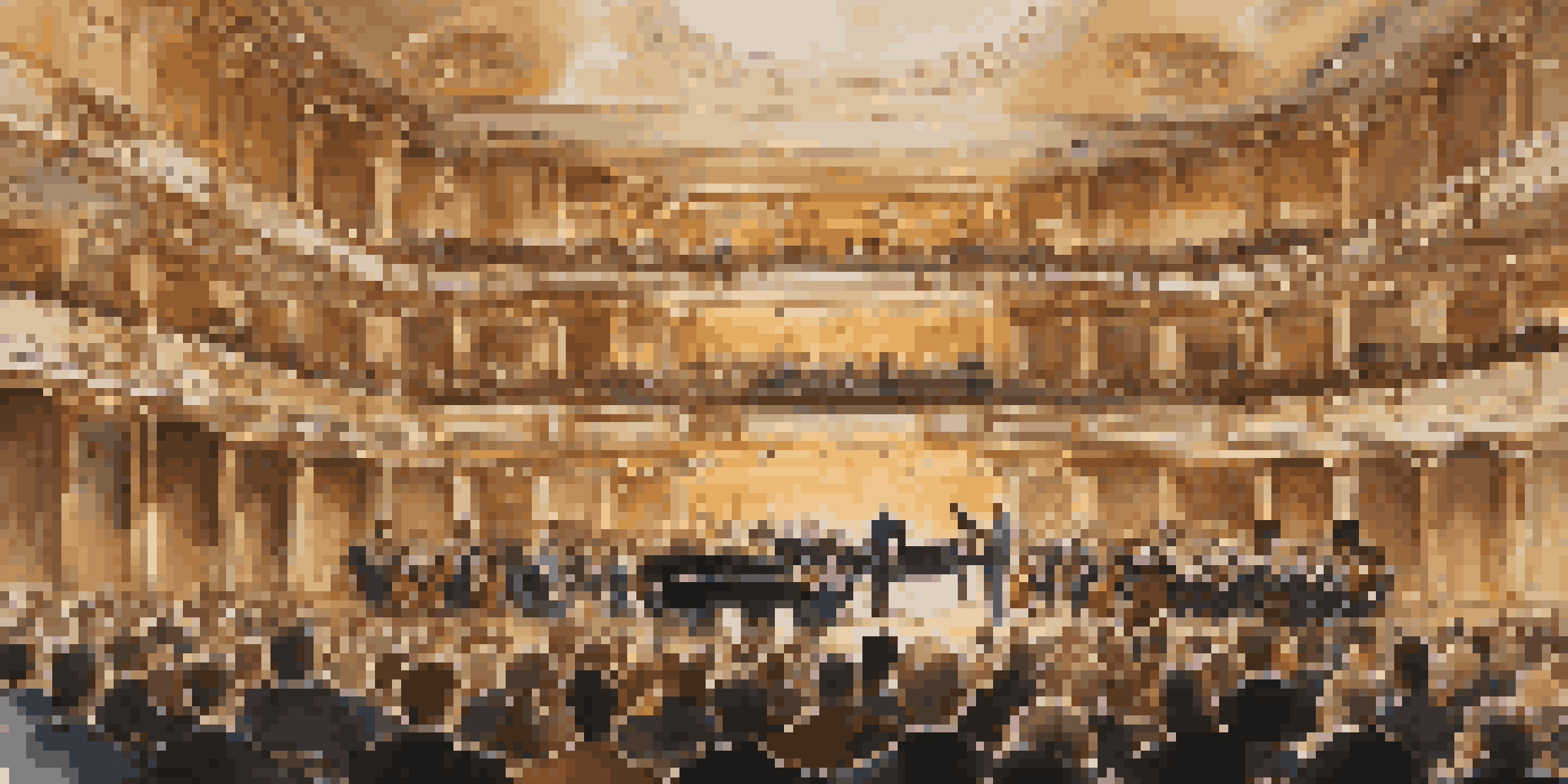AI and the Evolution of Music Genres: A Historical Perspective

The Birth of Music Genres: A Historical Overview
Music genres have evolved significantly over centuries, reflecting cultural shifts and technological advancements. From classical compositions that dominated the concert halls to the rise of folk music echoing local traditions, each genre tells a story of its time. Genres like jazz and rock emerged as a response to social changes, breaking away from earlier musical constraints. This historical backdrop sets the stage for understanding how AI is now influencing these very genres.
The Role of Technology in Music Development
Throughout history, technology has played a crucial role in shaping music. The invention of the phonograph allowed music to be recorded and distributed widely, changing how people consumed music. Similarly, synthesizers in the 1970s opened up new avenues for sound creation, leading to the birth of electronic music genres. Today, AI stands as the latest technological frontier, promising to redefine how we create and experience music.
AI Transforms Music Genres
AI is redefining music genres by blending human creativity with machine efficiency, leading to innovative sounds and styles.
AI's Entry into the Music Scene
AI made its debut in the music industry in the late 20th century, primarily through software that assisted in music production. As algorithms became more sophisticated, they began to analyze patterns in music, leading to the creation of new sounds. Artists started using AI as a collaborative tool, blending human creativity with machine efficiency. This partnership has sparked innovative genres and styles that were previously unimaginable.
Case Studies: AI-Driven Music Genres
One of the standout examples of AI's impact is the emergence of genres like algorithmic composition, where music is generated through complex algorithms. Artists like Holly Herndon have utilized AI to create entirely new musical experiences, merging human and machine input. Another example is the rise of deep learning in music recommendation systems, shaping genres based on listener preferences. These case studies highlight AI's ability to influence genre development organically.
Challenges of AI in Music
The integration of AI in music creation raises concerns about emotional depth and the complexities of copyright ownership.
AI and Genre Blending: A New Musical Frontier
AI has not only given birth to new genres but also encouraged the blending of existing ones. By analyzing vast amounts of music data, AI can identify trends and commonalities between genres, fostering innovative collaborations. For instance, the fusion of hip-hop and classical elements has gained popularity, leading to a unique genre that appeals to diverse audiences. This blending reflects a modern approach to music, where boundaries are increasingly blurred.
Challenges and Concerns with AI in Music Creation
Despite its benefits, the integration of AI in music creation raises several challenges. One major concern is the potential loss of human touch, as music generated by algorithms may lack emotional depth. Additionally, questions around copyright and ownership become more complex when AI is involved in the creative process. These issues highlight the need for ongoing discussions about the ethical implications of AI in the music industry.
Future of Music with AI
As technology advances, AI will play a crucial role in developing new genres that reflect the complexities of our digital age.
The Future of Music Genres with AI
Looking ahead, AI is set to play an even more transformative role in the evolution of music genres. As technology continues to advance, we can expect even more intricate collaborations between artists and AI systems. This could lead to the development of entirely new genres that reflect the complexities of our digital age. The future of music is not just about technology; it’s about how we embrace these changes while preserving the essence of musical expression.
Conclusion: Embracing AI's Musical Influence
In conclusion, AI's influence on music genres is profound and multifaceted. It has the potential to reshape how we create, experience, and understand music. As we navigate this new landscape, it’s essential to strike a balance between innovation and authenticity. By embracing AI while honoring our musical roots, we can look forward to an exciting future in the world of music.